22 The NORTH Lexical Set
north lexical set is one of the harder to get your head around, as it is paired with force, and a relatively small number of accents retain a contrast between the two. Examples of the north–force sets include horse–hoarse, for–four, war–wore. When an accent has this north–force merger, the items in force are spoken with the north sound, which is essentially the vowel in thought; this is especially true for non-rhotic accents. When an accent distinguishes between the two sets, force is pronounced with a more close articulation, generally in the range of /or/, while north is pronounced with a more open one in the range of /ɔr/. I’ve always found this difficult to remember, but perhaps this might help:
Oh, force is so forcefully close!
Aw, north is openly awesome, so drop your jaw!
I also think that it’s ironic that, on the vowel chart, north is “south” of force.
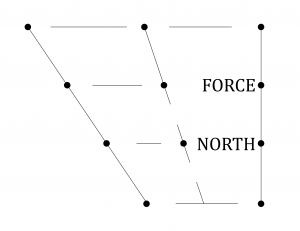
north has two ways of being pronounced, depending on whether it’s used in a rhotic accent or in a non-rhotic accent. In a non-rhotic accent such as those heard in the south of Wales, the West Midlands in England, India, the Caribbean or parts of the American South, in Boston and parts of Maine, north words feature the stressed vowel “aw,” or /ɔ ~ ɒ/. In some instances, such as some Southern US accents, non-rhotic north has schwa as an off-glide, e.g.[ɔə̯]. In a rhotic accent, such as those heard in some African-American accents and St. Louis, and in parts of the South, as well as in Scotland and parts of Ireland, north features the stressed vowel “awr,” or /ɔr ~ ɒr/. This book uses the standard phonetic notation of centring diphthongs offgliding from a nucleus on the periphery of the vowel space, in this case something in the range of [ɔ~ɒ~ɑ], moving toward a non-syllabic r-colored central vowel [ɚ̯~ɘ̯˞]. There are also accents of English that feature rhoticity with little or no off-glide, where the nucleus itself is rhotic, [ɔ˞ ~ ɒ˞ ~ ɑ˞]. The vowel in north is Free, so it can be in words with no consonant following it, apart from the silent/vowel ‹r› in its spelling: or, for, grantor, guarantor, nor, Thor, tor, war. (Note that that is the complete list of these words, excluding compounds like done-for, warlord.) The north Lexical Set only contains words with this vowel/diphthong followed by ‹r›; for those words without ‹r› in their spellinɡ, see thought.
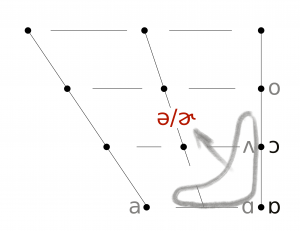
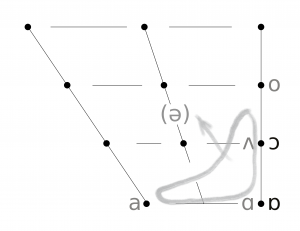
Wells, who first defined the Lexical Sets, set out three subgroups for north:
- north Ⓐ in free position, and derivative words, an extremely small group of words! (e.g. or, for, nor, war)
- north Ⓑ in checked position, with a following consonant (e.g. resort, quart, warp)
- north Ⓒ with intervocalic /r/ before a vowel (e.g. aura, aural, Laura, Taurus)
n.b. In RP, north Ⓒ is merged with lot: [ɒ] (e.g. aural) while cloth Ⓒ is merged with force Ⓒ & thought: [ɔ] (e.g. coral=choral). In other accents this might not be so.
- 🕊 Free: does not require a following consonant, and can exist on its own
- Can be a “centring diphthong”, that historically or in rhotic accents went/goes from the periphery to the centre, i.e. schwa.
- in stressed and unstressed syllables
Spellings
north Ⓐ: or#, ar# (compare force Ⓐ: ore#, oar#, oor#, our#)
north Ⓑ1: orC (no way to distinguish north Ⓑ from force Ⓑ1 by spelling)
north Ⓒ: aurV (compare force Ⓒ: orV, oarV)
There is no simple way to know north from force, especially force Ⓑ.
- north Ⓐ words are readily identified by spelling, with ‹or›, and ‹war› as in or, for, nor, war. Memorize the list as it is so short!
- north Ⓑ is ‹orC›, or ‹warC›, ‹quarC› (i.e. after /w/) as in short, order, quart, warn but force Ⓑ1 is ‹orC›, too, as in port, fort, torn, so that’s no help—you’ll need to look up any word spelled ‹orC›; note that there are more northⒷ ‹orC› words than force Ⓑ ‹orC› words.
- north Ⓒ is ‹aurV› as in aura, aural, Laura, Taurus.
If north and force are distinct, you have to figure out whether cloth is merged with lot or thought, which will tell you whether cloth Ⓒ goes with north (which is merged with lot) or force (which is merged with thought).
Pronunciations
Assuming that north isn’t merged with force, the north lexical set’s vowel in the non-rhotic version, and the nucleus of the diphthong in the rhotic version, is often pronounced with a mid-open back vowel, usually completely rounded. Realizations in non-rhotic accents are in the range of [ɒ~ɔ̞~ɔ]; rhotic north is realized as [ɑɚ̯ ~ ɒɚ̯ ~ɔɚ̯]. All of these realizations assume that north is more open than force, which is more close.
Personal Pronunciation: Preparation
We’ll begin our investigation of your Personal Pronunciation of north by answering the question of whether you have a rhotic or non-rhotic accent. When a word has ‹r› in its spelling after a vowel, do you pronounce it? For a rhotic speaker, words like beer, bare=bear, boor, boar, bar will have an /r/ sound after the vowel; for a non-rhotic speaker they will not. If you are a non-rhotic speaker, try saying north with an /r/ sound; if you are a rhotic speaker, give north a try without one. Go for it: or, for, nor, tor, Thor, war! Now, experiment on your own with an audio recorder, or with a classmate, friend, coach or teacher to identify how north in your speech compares with north in others’ speech.
- For the non-rhotic version, ask whether your vowel is a monophthong, a single action, or whether it has any movement to it—does your tongue move as you make the vowel—making it a diphthong? Though it is less likely that it does for a non-rhotic speaker, if you did notice a slight off-glide, where does it off-glide to? (For example, it might off-glide to schwa [ə]; try on words like corn, swarm.) If you don’t have an off-glide, then all you have is a nucleus!
- For the rhotic version, explore the nucleus of the sound before you off-glide into the r-colored coda of the diphthong. For some speakers, there is a significant shift from the nucleus where the north diphthong begins, and where the diphthong ends after the off-glide. For others with quite strong r-coloring, the rhotic quality is added to the nucleus. Rather than becoming r-colored over time, these speakers begin rhotic and may either stay there, or increase their r-coloring (rhoticity). If you start out being rhotic, then we would transcribe your north vowel with a rhotic diacritic right on the nucleus, e.g. [ɔ˞] or [ɒ˞]. You can add multiple “wings” to indicate more rhoticity if you would like, e.g. [ɔ˞ ˞ ˞]. Though it’s not “strictly-ipa-ballroom,” it’s fun and it works.
Before we begin with the nucleus of your north vowel, try to ascertain whether your version of it is merged with force. Compare these force/north minimal pairs to see if they match:
| force | north |
| oral | aural |
| boarder | border |
| borne | born |
| cored | cord=chord |
| fore=four | for |
| hoarse | horse |
| mourn* | morn |
| oar=ore | or |
| wore | war |
| worn | warn |
If they match: you have the north–force merger, and so the challenge for you is to explore trying out a new pronunciation. Generally, I find that those with a rhotic accent and this merger tend to need to explore opening up north words, and it can even help to try them with a non-rhotic accent first to see if that helps. Meanwhile, speakers with a non-rhotic accent and this merger may need to explore both closing force words towards [o] and opening north words towards [ɒ] in order to get enough of a contrast between the two.
If they don’t match: you don’t have the north–force merger, and so you’re blessed with the instinctual ability to distinguish between the two sets. In your explorations, you’ll want to be clear when and how you do it, and try to notice if any of the words listed here and on the north pages don’t match your expectations. Just because a word is listed here doesn’t mean your idiolect, or the accent you speak, has it in the same groups. As accents and language are always on the move, always changing, you may well be halfway through the process of a merger or a split, and so words haven’t “settled” yet into sets.
Personal Pronunciation: Articulation Options
In order to hear what you’re doing, start by lengthening the sound of your north nucleus, and then attempt to subtly move it around within the vowel space—up, forwards, down, and back—in tiny increments. Each tiny move should make a subtle difference in the sound of your vowel. As it is a mid-open to open back vowel in many accents, as you experiment you should feel the top surface of the back of your tongue moving delicately up and down—towards/away from your soft palate and uvula—making more or less space in the back of your mouth. For many speakers, north has a lot of lip rounding, though for some they find that they have very little—whichever you do naturally, try doing north with both very little and with a lot. Compare the nucleus of north with palm, thought, or lot, and see how great the contrast is between the vowels.
Rhoticity Scale: Now that you’ve explored the nucleus, let’s play with the coda, and think about how much r-coloring, or rhoticity, you’ve been adding. (If you are non-rhotic and don’t have an off-glide, either play along for fun, or skip down to “Transcribing north.”) How rhotic can you make it? How little rhoticity can you add without it having none? Can you make several shades of r-coloring: none, a tiny bit, a little, some, quite a lot, a ton? Think of it as a scale from 0–5. Where does yours sit? You would transcribe an off-glide to an r-colored schwa following the nucleus with a rhoticity “wing” diacritic, e.g. [ɑɚ̯].
For my own usage, I’ve tried adding a superscript number after a rhotic diacritic to rank the r-ishness on that 0-5 scale, with 0 being none and 5 as much as you can, e.g. [ɒɘ˞3] for a medium amount of r-quality.
Transcribing north: Decide which vowel/diphthong symbol best suits your north Lexical Set. Is it more close [ɔ̝], mid-open [ɔ], a more open ɔ [ɔ̞]; or is it more in the range of [ɒ̝ ~ ɒ ~ ɒ̞] or even [ɑ̝ ~ ɑ ~ ɑ̞]?
If your north vowel (or its nucleus) is… (use whichever vowel symbol is appropriate for you)
- high, use the raised diacritic [ ɔ̝ ], a small T pointing up
- open, use the lowered diacritic [ ɔ̞ ], a small T pointing down
- pushed forward, use the advanced diacritic [ ɔ̟ ], a tiny plus sign +
- pulled back, use the retracted diacritic [ ɔ̠ ], a tiny minus sign –
- if you add lip-rounding, use the more rounded diacritic [ ɔ̹ ], a tiny ɔ, which represents the lips rounding/projecting forward (to the left),
- if you have little lip-rounding, especially on a symbol assumed to be rounded like [ɒ, ɔ, o], us the less rounded diacritic [ ɔ̜ ], a tiny c, which represents the lips relaxing/moving back (to the right).
- if you have no lip-rounding, i.e. your lips are spread, you might use the unrounded equivalent symbols that match the traditional rounded ones. If you have completely unrounded [ɔ], then you might use [ʌ̠], and if your lips are actually spread, you could use the double-ended arrow diacritic for “lip spreading”: [ʌ͍̠]. Note that I use the minus sign diacritic for “retracted” as ʌ has traditionally been associated with an open-mid central vowel roughly equivalent to [ɐ]. The sound we’re going for is fully back!
If you have a rhotic north diphthong, your coda might be
- close-mid central, so use an r-colored reversed-e, [ ɘ˞ ]
- mid central, so use an r-colored (or “flying”) schwa [ ɚ ]
- open-mid central, so use an r-colored turned epsilon (or “flying three”), [ ɝ ]
Alternate Pronunciations
Experiment with the north Word Lists, Phrases and Sentences with the following vowel/nucleus options:
Rhotic nucleus: Also experiment with adding r-coloring to the nucleus (i.e. not to the end but to the beginning) from none to as much as you can make, e.g. [ɑ̟ɚ̯, ɑ̟˞1ɚ̯, ɑ̟˞2ɚ̯, ɑ̟˞3ɚ̯, ɑ̟˞4ɚ̯, ɑ̟˞5]. As you add rhoticity to the nucleus, the bunching and/or curling action of the tongue means that the off-glide also becomes more rhotic. At the most extreme levels, there is so much bunching/curling on the nucleus that there really is no room to move towards the off-glide.
Rhotic off-glide: Now experiment with diphthongs that have a purely non-rhotic nucleus, and off-glides that range from least open to most open [ ɘ˞, ɚ, ɝ ], and/or from no r-coloring, to as much r-coloring as you can make, e.g. [ ɘ, ɘ˞1, ɘ˞2, ɘ˞3, ɘ˞4, ɘ˞5]. Jump around, trying to mix and match: [oɘ̯˞5, ɔ̝ɝ̯1, ɤə̯, o, ʌ̠ɚ̯3, ɔ˞2].
As you move the vowels in the directions recommended, see whether that modified oral posture might inspire you to move the articulation of consonants and other vowels in the word in similar ways. Does it remind you of an accent other than your own?
I am indebted to John Wells’ original list of north words, and to Jeremy Sortore’s list, available online: https://voiceandspeech.site/north-force-reference-list/ ⧉.
Word List for north Ⓐ in a Free Syllable, followed by a pause, or by a suffix
KEY: ◾︎north in stressed syllable ◽︎north in unstressed syllable
Word Lists for north Ⓑ, sorted by the consonant that follows
KEY: ◾︎north in stressed syllable ◽︎north in unstressed syllable
PLOSIVES
-p
-b
-t
-d
-k
-ɡ
micro-organisms, morgue, reorganize, sorghum, smorgasbord
AFFRICATES
-tʃ
-dʒ
NASALS
-m
-n
-ŋ
FRICATIVES
-θ
-ð
-f
-v
-s
-z
-ʃ
-ʒ
APPROXIMANTS
north before /rV/ is Wells’ Group Ⓒ, with north before consonant /r/ going into a vowel. Take time to explore:
- a rhotic monophthong version, without a consoant /r/, e.g. aural, [ˈɔ˞.əɫ]; then
- a rhotic diphthong version without a consonant /r/, [ˈɔ˞ɚ̯əɫ] or [ˈɔɚ̯əɫ]
- a rhotic diphthong, with consonant /r/, [ˈɔɚ̯ɹəɫ]
- a non-rhotic diphthong, with consonant /r/, [ˈɔə̯ɹəɫ], and finally
- a non-rhotic monophthong, a pure vowel followed by a consonant /r/, [ˈɔɹəɫ].
Can you feel how fluid/abrupt these different options can make it seem: how can these different options serve you in different contexts?
-ɹ
-l/ɫ
-w
Short Phrases
- Assorted sorbitol candies.
- Play the chord on the organ.
- Orville Redenbacher’s popcorn.
- Northwestern Cornwall.
- Norman drove from Yorkshire to Orkney.
- Corgis have short legs and long torsos.
- Lorna was addicted to porn.
- The contortionist wore a corset.
- Was Transformers shot in California?
- The gorgeous Lena Horne.
- Björk is recording in New York.
- I studied neither tort law nor criminal law.
- Orchids grow well in Georgia .
- The train disgorged its passengers at the Gare du Nord .
- The Borg are cybernetic organisms.
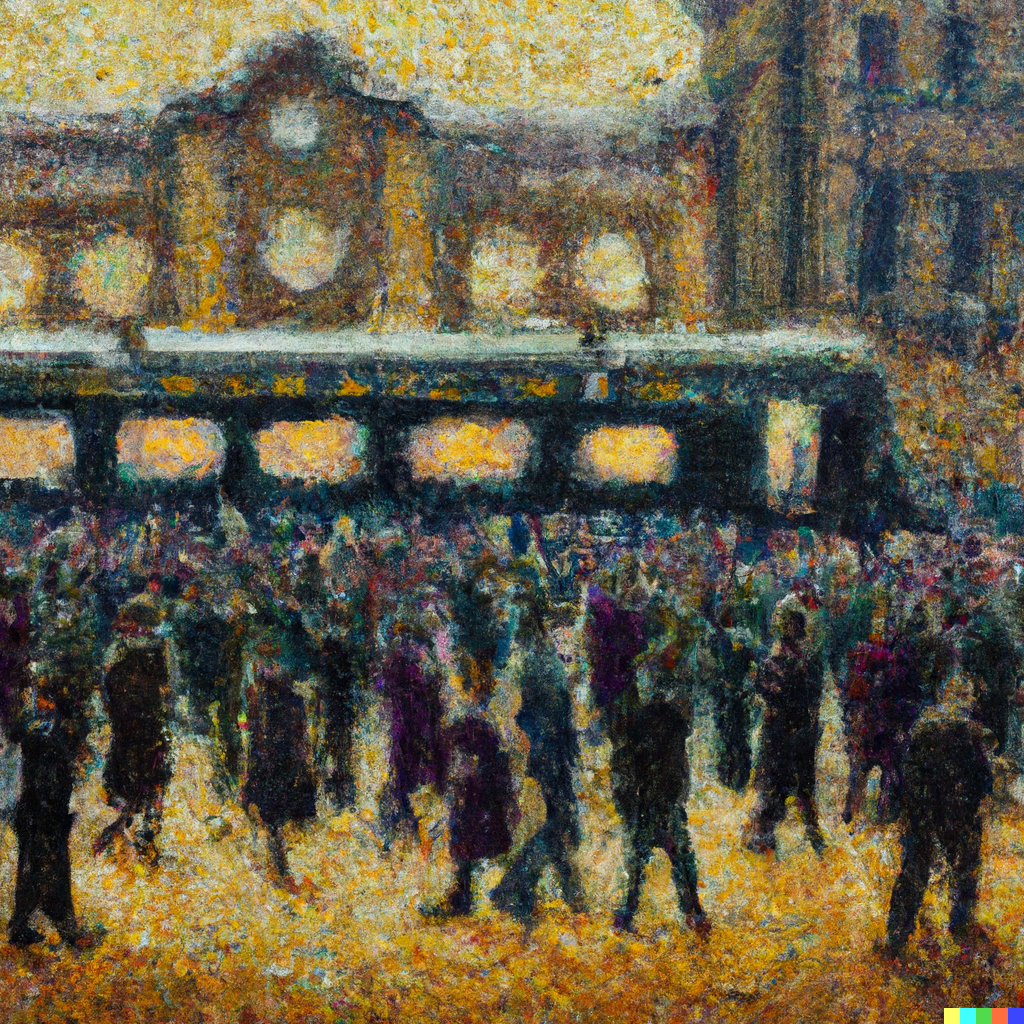
Sentences
Level 1
Short with 2-3 words, underlined
- The brontosaurus fossils were found on the Dorset coast.
- Grime artist Stormzy was born in Croydon, but grew up in Norbury.
- The mortician made the corpse look gorgeous.
- We sat in the corner gorging on Cornish game hens.
- A Porsche was found just north of Glastonbury tor.
Level 2
Short with 4-5 words, underlined
- The torch-singer recorded a scorchingly hot version of Piaf’s Milord.
- The self-absorbed Thor escorted Loki to the warden of the Bifröst, Heimdall.
- Laurie’s corset hurt so much she took morphine, against her doctor’s warnings.
- Either adorn the tree with ornaments or torch it, and get an orchid instead.
- Fortunately, Gorbachev[1]’s reforms of the Soviet Union warmed relations with the west.
Level 3
Medium with 3-4 words, not underlined
- Rock-and-roll performer Roy Orbison was mortified by the use of his song in Blue Velvet.
- Is the character of George in Thornton Wilder’s Our Town corny?
- Dvořák studied organ and then played viola in the orchestra before becoming a composer.
- The storm took an hour to go from Mount Orford to Gorge Park.
- We used a fork to remove the broken cork in the wine we drank on the porch.
Level 4
Hard with 4-6 words, not underlined
- The Californian consortium of orthopedic specialists used warfarin to treat blood clots.
- Ms. Forbes exhorted her actors to do the torturous warm-up before performing.
- The corporal’s parents abhorred that she asked them to serve as guarantor for her mortgage.
- He snorted at the Mallorcan smorgasbord, before gorging himself on cornbread.
- The organization of orphanages distorted the important testimony of former residents.
Mergers
north–force Merger: Also known as the “horse-hoarse merger,” where force merges with north, as is found in much of the English speaking world. Accents which do not have the merger are found in Scotland, India, Ireland, the Caribbean, and in some accents of the US, including parts of the US South, Maine, and in some African American Englishes (See p. 4 for examples). If you have this merger, then try to differentiate the north and force words in the sentence below.
Experiment with differentiating north/force pairs such as: [ɑ/ɔ, a̠ɚ̯/ɒɚ̯, ɑ˞/oɘ̯˞, ɐ̞/o, ɒɚ̯/ɔɚ̯].
If you do not have this merger, try to match them, using [ a, ɑ, ɒ, ɔ ] first as a non-rhotic vowel, or as the nucleus of a diphthong.
-
- The boarder who was hoarse rode his horse to the border to mourn for his mother this morning.
- The museum curator had to escort the newly imported and highly important Andy Warhol* portrait.
- There was no remorse for people caught using outside resources during the final exam of the Morse Code Course.
- Laura had to prepare for the notoriously difficult German oral and aural exam.
thought–north Merger: For much of the non-rhotic English speaking world, north and thought are merged. Also known as the “Pawn-Porn” merger, it is found in the great majority of non-rhotic accents including those in Australia, New Zealand, South Africa, England, Wales, the United States, and the Caribbean, excluding the Bahamas and Guyana. thought–north minimal pair/homophones include: awe/or, caulk/cork, cawed/chord, draw/drawer, gnaw/nor, laud/lord, sought/sort, stalk/stork, taut=taught/tort, thaw/Thor. If you have this merger, then experiment with differentiating thought/north in the sentences below with such pairs as: [ɔ/ɒ, ɔə̯/a, ɑ/oɘ̯˞, ɔ̞/o, ɒ/ɔɚ̯].
-
- He sought the sort of stork who stood by the stalks of bullrushes.
- Thor could neither gnaw nor chew on the meat before it could thaw out.
- Lawson gifted me an awesome porcelain horse for my birthday.
- The new restaurant around the corner is having a soft launch tonight; I got a brochure on our lawn this morning.
- I was taught it was important to drink at least three quarts of water a day.
If you do not have the thought–north merger, try to match them, using [ o, ɔ, ɒ, ɑ ] first as a non-rhotic vowel, or as the nucleus of a diphthong.
lot–north Merger: lot and thought are pronounced the same in this merger, found in some traditional non-rhotic accents of Eastern New England in the US, and in Singapore English, which also includes force. Also known as the “Shot-Short” merger, it is found in the great majority of non-rhotic accents including those in Australia, New Zealand, South Africa, England, Wales, the United States, and the Caribbean, excluding the Bahamas and Guyana. thought–north minimal pair/homophones include: cops=copse/corpse, cox=cocks/corks, cod/chord=cord, con/corn, fox/forks, ox/orcs, pock/pork, posh/Porsche, pot/port, shot/short, tock/torque, wand/warned, wobble/warble. If you have this merger, then experiment with differentiating lot/north in the sentence below with such pairs as: [ɒ/ɔ, a/ɔɚ̯, ɑ/oɘ̯˞, ɔ/o, ɒ̝/ɔ̝ɚ̯].
-
- The orcs driving the ox were warned not to con the man with the wand out of his corn.
- Thomas attributes his phenomenal performance to his long and extensive warm-up.
- Someone unfortunately stole my watch while I was birdwatching in Portugal.
- Morgan, my corgi, is very picky with dogfood, and hates when it’s soggy.
If you do not have the lot–north merger, try to match them, using [ ɔ, ɒ, ɑ, a ] as a non-rhotic vowel.
north–force–nurse Merger: The broad Geordie accent has traditionally had a merger where nurse words are pronounced with the north–force (merged) vowel, as the central vowel /ɜ/ shifted back due to the historical uvular /r/ [ʁ], which has since disappeared. Note that contemporary, more middle-class Geordie has reversed course, and moved nurse forward, into the range of a rounded front vowel, [ø̈]. north–force–nurse minimal pair/homophones include: for/fir, more/myrrh, short/shirt, war/were, four/fir, reˈcord,/recurred, former/firmer, ward/whirred, accord/occurred, assort/assert, boar/burr, board/bird.
-
- There was a commercial for an immersive haunted house in Warsaw that displayed their collection of artificial torsos.
- Osman journeyed far to return to where he was born, on the island of Borneo.
- The warden could not afford to be transferred to another facility if another altercation occurred.
start–north Merger: Also known as the “card-cord merger,” where north merges with start, as is found in St. Louis, Missouri, and has been reported in some Caribbean accents such as Guyanese and Jamaican, and in some (historical) accents of Utah, and Central Texas. If you have this merger, then try to differentiate the north and start words in the sentence below. Accents with this merger lack the force–north “Hoarse-Horse” Merger. If you do not have this merger, try to match them, using [a̠ɚ̯, ɑ̟ɚ̯]. If you have this merger, you’ll want to explore using the Hoarse-Horse merger instead, and use something like [ɔ̝ɚ] for your north words. Minimal pairs that are homophones with this merger include: arc/orc, are/or, barn/born, card/cord=chord, dark/dork, far/for, lard/lord, stark/stork, tart/tort.
Experiment with differentiating start/north pairs such as: [ɑ/ɔ, a̠ɚ̯/ɒɚ̯, ɑ˞/oɘ̯˞, ɐ̞/o, ɒɚ̯/ɔɚ̯].
- The orc who killed the archer wasn’t born in a barn!
- He was born in the dark mud of Mordor, you dork!
- Snorkelling at a resort in the Maldives to see sharks is a remarkable experience.
- “Seems like all of California is headed northbound to this carnival!” Martha exclaimed.
- Norman is normally very charming, but the fire alarm made him lose his cool.
Splits
There are no known north splits.
Review
Pathway Puzzles
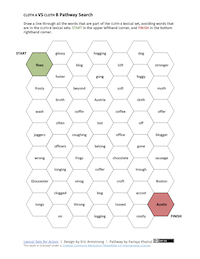 Pathway Puzzles allow you to practice finding members of a lexical set. Choose the next cell with the FIRST lexical set word to make a pathway from the START of the puzzle down to the FINISH. Open the KEY document to see the solution, and check your work. Pathway Puzzles were created by Farisya Khairul, through support from a AMPD Minor Research Grant.
Pathway Puzzles allow you to practice finding members of a lexical set. Choose the next cell with the FIRST lexical set word to make a pathway from the START of the puzzle down to the FINISH. Open the KEY document to see the solution, and check your work. Pathway Puzzles were created by Farisya Khairul, through support from a AMPD Minor Research Grant.
north – force Pathway Puzzle | KEY
force – north Pathway Puzzle | KEY
cure – north Pathway Puzzle | KEY
- [ˈɡɔɚbətʃɒf] ↵
Having /r/-colouring; may apply to a vowel, or to an accent that maintains historic /r/ "after" the vowel (i.e. in the spelling). The opposite of non-rhotic, which lacks /r/-colouring.
Lacking /r/-colouring in the vowel, or an accent that lacks historical /r/ "after" the vowel (esp. in the spelling). The opposite of "rhotic." "Rho" is the name for , the Greek letter that represents /r/.
The most prominent part of a diphthong. For most English diphthongs, it is the first part of the diphthong. Paired with a glide either an "onglide" into the nucleus, or an "offglide" out of it. Sometimes the term "coda" is used for the offglide.
The weak end of a falling diphthong, the offglide from the nucleus. Typically this is some variant of /ə/, /ɚ/, /ɪ/, or /ʊ/.

